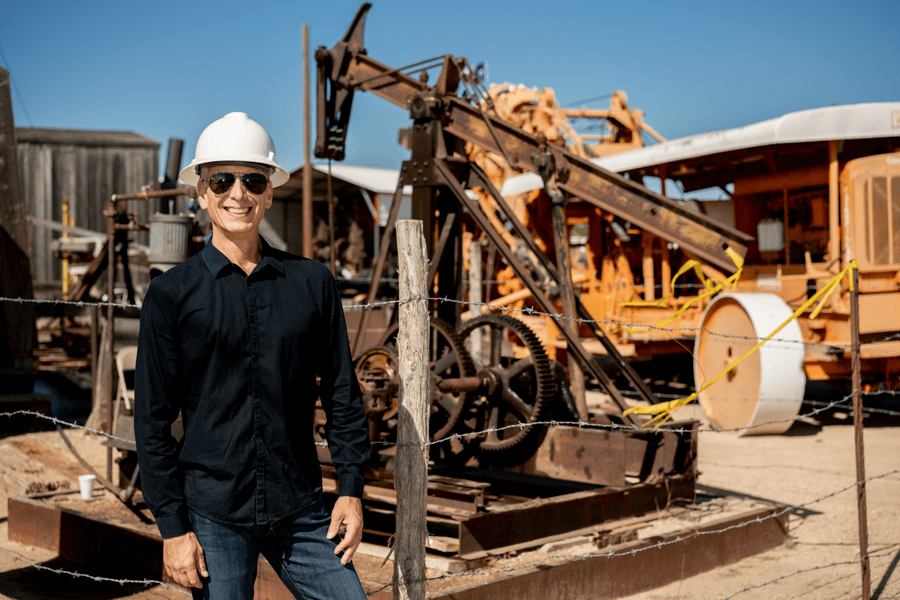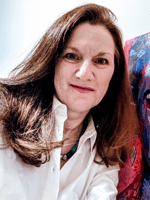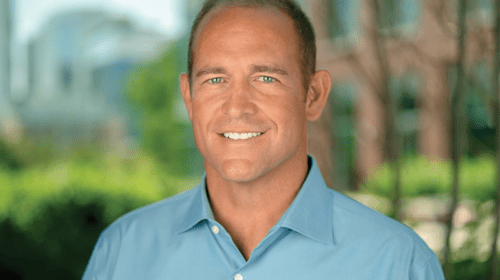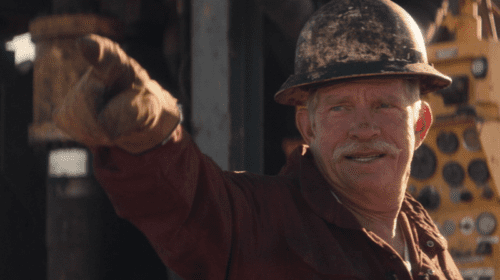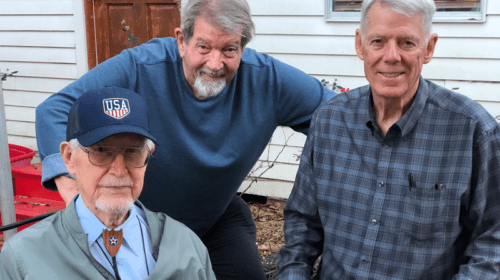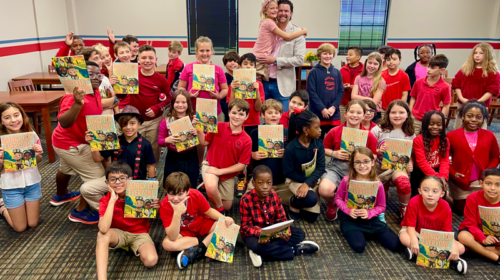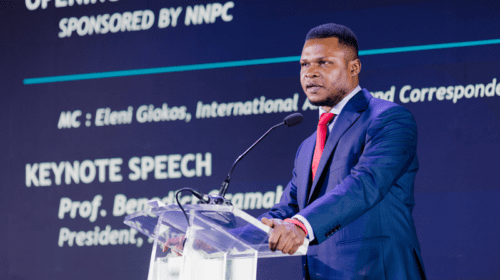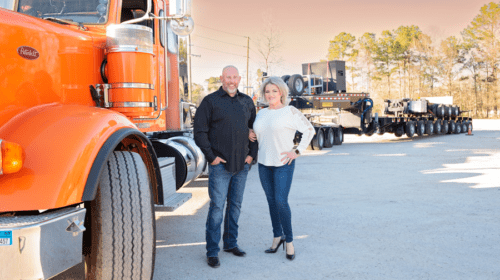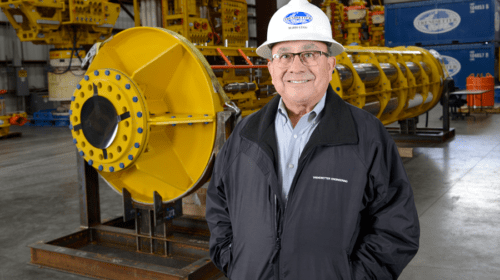“I’m a method journalist so, before I do a story on skydiving, I’m going to go skydiving,” explains Jason Spiess, founder of The Crude Life podcast, and its public face and voice. “So, before I was going to do anything on oil and gas, I went to spend a little time in the Bakken Shale. I was out there for five minutes and I just fell in love with the opportunity the industry offered because I’m an entrepreneur at heart.”
Spiess originally set out to do an exposé on the oil and gas industry and, instead, had a change of heart. Armed with assignments from prestigious media outlets like the New York Times, he planned to use his investigative skills to report negatively on the industry, but says, “I saw very quickly that the oil and gas industry was not the enemy, not the bad guy, wasn’t the big bad wolf and that what it really did was create opportunities.”
However, what he also saw were “a lot of elected officials and appointed leaders abusing their power and a lot of middlemen that are making the oil and gas companies look bad. I didn’t see the oil and gas companies as the bad guys; I saw that there were some bad employees and some bad people.” While acknowledging that can be a problem in any industry, Spiess says the difference is, in the energy sector, with so much money at stake, it can have a real impact.
“What I saw was an industry that actually needed help with its image,” and in creating The Crude Life podcast, “we chose to look at the positives and the incredible innovation going on.” One of the ways Spiess and his crew do that is to focus on stories of “Everyman” – the ordinary men and women who make up the oil and gas industry. “I actually gained an authentic, organic respect for the industry because I was a method journalist,” he says of spending time living and working among the people, not just in oil and gas, but the other businesses they support, like the mom-and-pop store and the local hardware shop. “We wanted to be there to help tell the story from the 5,000-foot view, but also on the micro local level because that’s really where the change happens.”
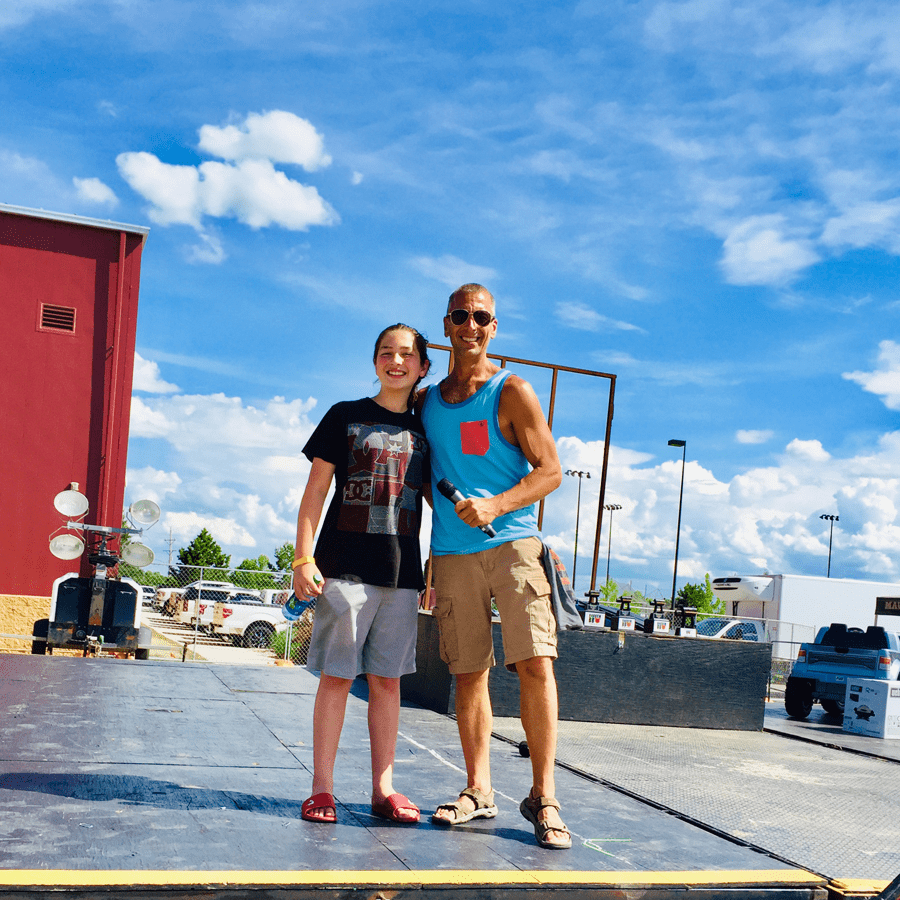
Change has been a constant in Spiess’ own life. After 20 years as a journalist and publisher, he felt the full brunt of the 2009 economic downturn and was forced to close his business, a real blow to a lifelong entrepreneur, who had his first 1099 job at the age of 10 working a neighborhood newspaper route. At the time of the 2009 crisis, he was a stay-at-home dad with a young son and so, when he was offered a radio job, he says, “I took the steady paycheck.” It turned out to be a wise decision for a number of reasons and Spiess won two national awards in the three years he was with the station, covering natural disasters in his home state of North Dakota.
Starting The Crude Life podcast in 2012 was a natural progression of his career, as the communications industry moved online and became digitized, an evolution he sees as somewhat similar to the transition the oil and gas industry is currently experiencing.
“When you hear CEOs and board chairs talk about a paradigm shift – something I’ve experienced in the communications world; the Internet was a paradigm shift – it’s more than a buzzword. When Harold Hamm at Continental Resources and James Volker from Whiting Petroleum and John Gibson at ONEOK, when people at these levels say it’s a paradigm shift, they mean it because shareholders are listening, employees are listening and the competition is listening.”
“Paradigm shifts are real and the oil and gas industry needs to understand that they bring change.” For that reason, The Crude Life embraces all forms of energy – “renewables ain’t doable without fossil ‘fuelables,’” says Spiess, who loves nothing better than a clever turn of phrase – and welcomes all voices. “Everyday energy for everyday people because, quite honestly, everybody uses energy and that’s another reason we’ve gone the direction we have – hang on one second,” he says, pausing our phone call, “I’m throwing cobs of corn into the cornfield so my dog can go find them [while we talk].”
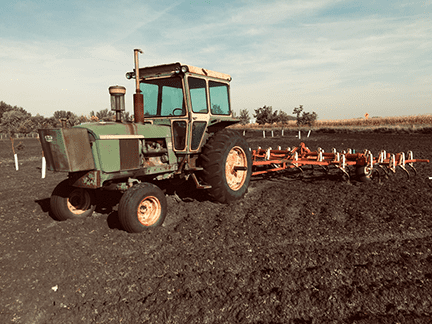
Fracleberry Hound – like Huckleberry Hound with an oil and gas twist – is part of The Crude Life crew. As Spiess shares with audiences, she was a stray he came across while touring a reclamation site, prompting kids and their parents to ask what a reclamation site is. “So, within two minutes, with this dog, I’ve got people smiling at the word ‘frac’ and they’re being educated on what reclamation is using rig mats to preserve the native flora [at a drilling site] – and they’re blown away by that. All of a sudden, we’re having a regular conversation about oil and gas, and the part that industry has a hard time with is they’re not used to having these grassroots, one-on-one conversations because it takes time to make it work. They’re used to just paying money and having results. This is definitely a boots-on-the ground thing.”
Spiess believes listeners relate to a show that focuses on ordinary people like themselves and, therefore, gets the message across more effectively than an industry-specific, niche podcast would. “The oil and gas industry needs to understand not everybody wants to listen to a podcast about a $650,000 generator that works in wet gas. That’s a very small audience, so reaching a larger audience is the work you’ve got cut out for yourself in the oil and gas industry right now.”
What he and his team have tried to do with The Crude Life is allow people to have their stories told from a social standpoint, which is why they interview industry outsiders – café owners and truckers and nonprofit executives. “We want people to have a complete understanding of an oil and gas community because, as I mentioned before with the paradigm shift, the agriculture industry has gone through this, too, and what the ag industry found out was that the grocery store replaced the farmer and, right now, the light switch has replaced the oil and gas worker. The average person has no idea where their energy comes from.”
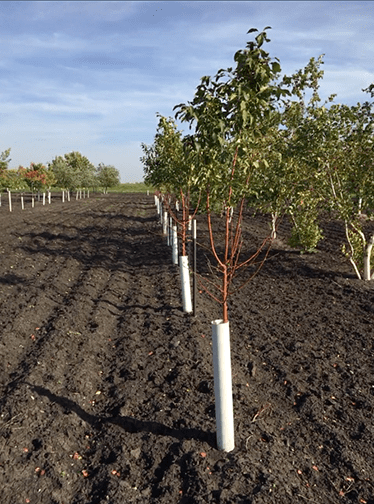
“I saw it firsthand in the agriculture industry. My whole family comes from farming; we are not from energy or from oil and gas. I’m new to the industry, coming in just 10 years ago, and I’m very upfront with oil and gas people about that because the oil and gas industry, whether it’s good or bad, is a very family-oriented, legacy business. I think the agriculture analogy is a really important one for the industry to look at, too, from the PR side of things. No matter what the farmers did, you knew they were feeding the world. They were getting up at 5 a.m. every day making sure that things were running [properly] – a lot like oil and gas workers – and the grocery store just took them out.”
More than once, Spiess expresses his concern that the energy industry might become subsidized like agriculture has been, with the government telling businesses what and where they can farm – or drill. “I’d hate to see the oil and gas industry go that way because what I saw was an industry full of opportunity. If you built a better mousetrap, they would reward you for it.” He wants that entrepreneurial spirit to continue to thrive as the industry moves forward with the energy transition.
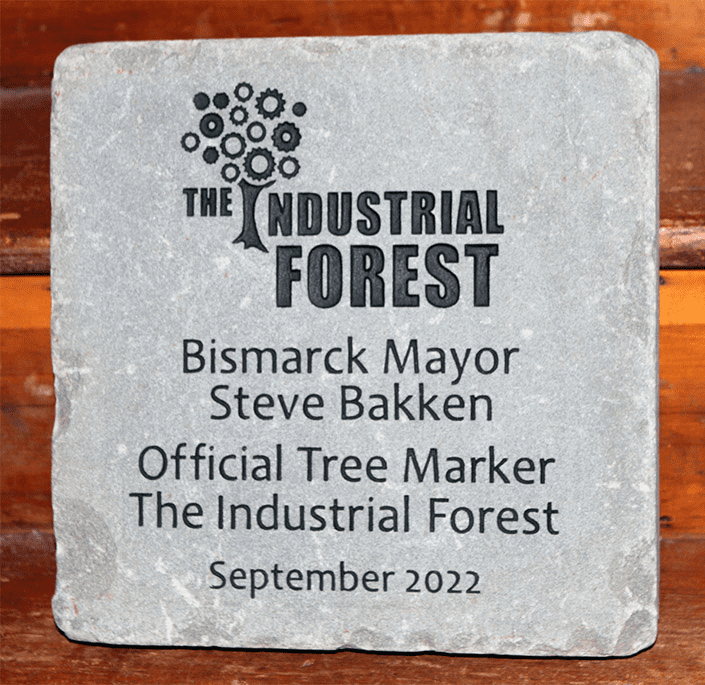
He is adamant that The Crude Life is non-political. “A lot of times people don’t understand what non-political means. For us, if it’s about energy, we’re going to have it on – whether it’s good, bad or indifferent. That’s not for us to decide,” says Spiess, who rails against what he calls “media Mad Libs,” where an outlet has an agenda and the story angle is a foregone conclusion or, as he says, “You have the thing written ahead of time and just fill in the names.” Instead, “We take more of a journalistic approach, so that our audience can decide.”
“We started focusing on the innovation and the community building because, quite honestly, I felt like students were going to read about what was going on in the Bakken and the Permian and some of these other shale plays in history class. So, as a reporter, as a writer, the whole documentation side of a paradigm shift of something that is probably going to be known as the Shale Age – like the Iron Age – is incredible. As a human being, as a journalist, I could not not be a part of history in the making,” Spiess says, his voice still filled with conviction. “I called it the ‘siren song of the Bakken.’ I got lured by the entrepreneurship, the recording of history and being a part of it. Everything about it was just amazing.”
Spiess is an unlikely ambassador for the oil and gas industry. A self-described “hippie,” he says, “I’m an environmentalist first and foremost and have been for over 20 years.” He found a way to merge his passion for the industry with his sense of environmental justice in 2017 by creating The Industrial Forest, with a goal of planting 1,000 trees in each of the 50 states over a 10-year period, which will eventually consume 10 million pounds of carbon dioxide (CO2) per year.

The Forest is more than just a tree planting initiative; Spiess calls it an industrial “ecolution,” that will contribute to helping solve the climate crisis. Through the process of photosynthesis, a mature tree can absorb 48 pounds of carbon dioxide a year; this is nature’s own carbon capture technology at work. Tom Crowther, a researcher at ETH Zürich, and senior author of the 2019 “The global tree restoration potential report” published in Science, says, “Our study shows clearly that forest restoration is the best climate change solution available today.”
But, as the venture’s slogan says, “It takes an industry to build a forest,” and Spiess is still attempting to get industry onboard with the idea. “We spent a year and drove over 10,000 miles and didn’t get [the support of] one energy company in North Dakota.” Ever the entrepreneur, he says, “We’re still going to move ahead with it but we’re going to do it differently,” and, instead of focusing solely on garnering support from the energy industry, The Forest will partner with other interested industries.
Spiess’ latest role, as an environmental, social and governance (ESG) instructor and environmental energy ambassador, is one he has been preparing for almost all of his life and the industry is finally catching up with him. He personally adopted a highway in 2004 (“so it’s my name on the side of the highway, not The Crude Life”), is an organic, plant-based eater for health reasons (as a Stage 4 cancer survivor, he says, “I don’t mess around”), and says the company has been carbon neutral “since day one,” and doesn’t even own a printer. He is a proponent of recycling and reusing and, while all those things are proactive on an individual level, he says companies and industry need to think on a larger scale to have a real impact.
“If you want to go plant trees, that’s entry level. If you want to have ‘Meatless Monday,’ that’s entry level. If you want to get serious, you’re talking about management changes. You’re talking about actual emissions management by reducing flaring. And you’re not even making money; you’re breaking even. But the long play is that you’re going to make more money next year by doing it now.” More importantly, he says, “I believe that the energy industry can help save the planet.”
Spiess acknowledges that it is a slippery slope and that the issues can become politicized, but he believes the pros outweigh the cons. “You’re going to have companies that have innovative ideas get to the marketplace sooner than they are right now because currently there’s a little bit of hesitation to bring in new ideas,” due to the normal resistance people have toward change.
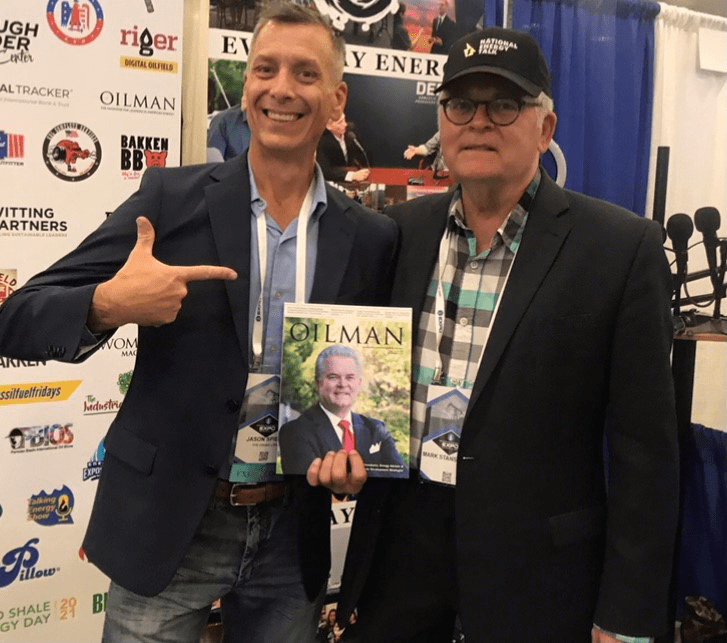
As The Crude Life approaches its 10-year anniversary in 2022, he is willing to shake up his own organization to keep things fresh and relevant. Currently, Spiess is conducting a nationwide search for a new co-host and will slowly bring in new voices, like Ken Lavin and news correspondent Matt Hill, both of whom are based in Oklahoma City. While Spiess will still be the host, he won’t be the main voice behind The Crude Life in the coming year.
“I have a new title and – as far as I know – I’m going to be the first Chief Intention Officer in the country. I’m going to make sure that the intention of The Crude Life and its mission statement stay the way they are, so that everybody’s voice is welcome. We’re not going to turn into a country club. It’s not going to be an echo chamber but, in order to prevent that, I need more voices than just mine.”
“I would like our motto for next year to be ‘Think Beyond.’ We’re trying to push people in the same way that we did with our original slogan, ‘Ready for Anything.’ We’re just trying to think of new ideas beyond what people are doing because we believe the energy industry has to think outside the echo chamber. Even in the beginning, I had to think beyond. I had to keep an open mind when we were going to investigate [and speak out] against the industry because that was the low hanging fruit. I went in the opposite direction because I didn’t want to do the ‘media Mad Libs.’ I want to be a role model for my son.” Right on cue, Fracleberry Hound barks in the background.
www.thecrudelife.com
www.theindustrialforest.com
Rebecca Ponton has been a journalist for 25+ years and is also a petroleum landman. Her book, Breaking the GAS Ceiling: Women in the Offshore Oil and Gas Industry (Modern History Press), was released in May 2019. For more info, go to www.breakingthegasceiling.com.
Oil and gas operations are commonly found in remote locations far from company headquarters. Now, it's possible to monitor pump operations, collate and analyze seismic data, and track employees around the world from almost anywhere. Whether employees are in the office or in the field, the internet and related applications enable a greater multidirectional flow of information – and control – than ever before.

